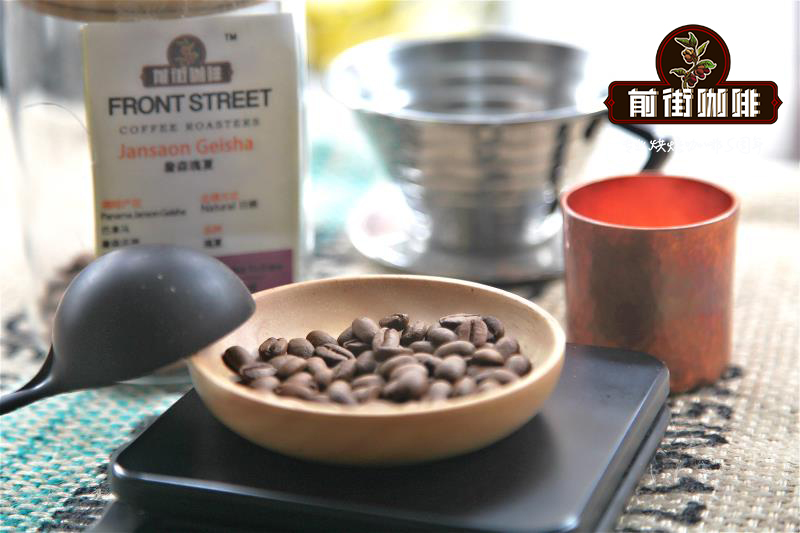What is coffee bean decaine? Decaf beans recommend where to sell decaf coffee in Guangzhou

Professional coffee knowledge exchange More coffee bean information Please pay attention to coffee workshop (Weixin Official Accounts cafe_style)
As early as the Stone Age, humans began to use caffeine. Early people discovered that chewing the seeds, bark or leaves of certain plants had the effect of reducing fatigue and refreshing. It wasn't until many years later that it was discovered that soaking these plants in hot water increased the effectiveness of caffeine. Many cultures have myths about people discovering these plants in ancient times.
● Caffeine is an alkaloid, hot cocoa, functional drinks after exercise, cola, coffee tea and other natural drinks, will contain a certain amount of caffeine. Even in nature, most plants contain this substance. Caffeine has the effect of stimulating the central nervous system and temporarily restoring some physical strength.
Caffeine is a central nervous system stimulant and a metabolic stimulant. Caffeine is used both as a drink and as a medicine to refresh and relieve fatigue. The exact amount of caffeine needed to produce an effect varies from person to person, depending on body type and caffeine tolerance. Caffeine begins to work in the body in less than an hour, and for a moderate dose of caffeine, the effects disappear in 3 to 4 hours. Caffeine consumption does not reduce the amount of sleep required; it only temporarily reduces the feeling of drowsiness. Because of these effects, caffeine is a performance enhancer: it boosts brain and body abilities.
Caffeine is safe for humans, but it is toxic to some animals, such as dogs, horses and parrots, because their livers are much less able to break down caffeine than humans. Caffeine has a significant effect on spiders, far more than any other drug, so here's a tip: don't give your dog your coffee.
In general, Arabica coffee beans are low in caffeine, with 1.1% to 1.7% caffeine, while Robusta coffee beans contain 2% to 4.5% caffeine. Decaf coffee is regulated to contain no more than 0.3% caffeine in brewed coffee. That means there should be no more than five milligrams of caffeine in a cup of decaf coffee before it can be called decaf beans, or decaf coffee.
The decaf coffee bean processing step must be performed in the green coffee bean state. There are three main types of treatment methods available to remove caffeine: traditional/European processes, Swiss Water Process (SWP), and CO ˇ Supercritical Process. All three methods are very effective at removing most of the caffeine, leaving only 2- 3% of the original caffeine in the coffee bean.
There are three ways to remove caffeine. Decaffeination reduces the taste of coffee.
● First, European (solvent) treatment, there are two subdivisions.
1. Direct solvent method. Steam opens the green bean holes, sprays the caffeine solvent directly, and continues to remove the solvent and caffeine by "steaming".
2. Indirect solvent method. Soak raw beans in hot water and soak everything that can be soaked. Water beans separated. Remove the caffeine from the hot water with solvent, and spray the remaining "flavor" back onto the tasteless bean body.
This method generally uses methylene chloride. This is a relatively common organic solvent, and it has low toxicity. Soak green coffee beans in a solution of methylene chloride so that the caffeine in the beans dissolves into the solvent and is separated from the beans. Finally, the coffee beans should not be completely removed at this time, and there will be some residue. However, methylene chloride has a very low boiling point (40 ° C) and can be easily removed by heating. And it's a lot cooler than coffee roasting. Therefore, the safety of direct contact method is relatively recognized internationally.
·Swiss water treatment. There are two main steps to using this commercially developed efficient process.
That is, in the state of green coffee beans, they are poured into hot water, at which time the hot water will remove almost all the flavor factors in the coffee beans, including caffeine, and discard the initial batch of green coffee beans. Then the hot water loaded with all the flavor factors is filtered out by activated carbon filter, and the rest is the hot water loaded with pure flavor factors. This hot water is called "Flavor-charged Water" in Swiss water treatment method. This water contains saturated, all the flavor factors that coffee beans should have, but lacks caffeine. This special water is the most important medium in the subsequent decaffeination process.
Soaking a new batch of green coffee beans in flavored, caffeine-free water loaded with flavor factors releases caffeine from the green coffee beans, but does not release flavor factors. In this way, the original flavor of the coffee beans will not be greatly reduced. Obviously, the flavor factor in the flavor loaded water is already close to saturation, so no more flavor factors can be dissolved, but there is still a lot of room for caffeine to dissolve.
After this decaffeinated process, green coffee beans are dried and sold directly, and the caffeinated flavor is loaded with water, which can be repeatedly decaffeinated by activated carbon filters and reused.
Mainly through flavored water that is already full of coffee flavor components but without caffeine. The caffeine in the newly soaked beans will diffuse into the water. Theoretically, the flavor will not be lost, but in fact, you will know that there must be a loss after drinking.
● Carbon dioxide supercritical treatment method (CO ˇ Process): carbon dioxide supercritical treatment method is to soak coffee beans in liquid carbon dioxide, under high pressure, carbon dioxide is semi-gaseous, semi-liquid state, carbon dioxide in this state can actively combine with caffeine, and caffeine is most regretful to be filtered by exhaust activated carbon filter.
In fact, decaf coffee beans are a special processing method of coffee beans, and their caffeine content is below 1%. In the rest of the coffee picking, processing, roasting, and brewing process, it is no different from non-low-caffeine beans, except for one more step in the processing of raw beans.
In theory, decaf coffee should not lose much of its flavor. But in fact, this does not mean that the same kind of beans, low and non-low-cause drink exactly the same (the taste difference is quite obvious, especially the alcohol degree is reduced a lot). Just saying, if this bean has an herbal or citrus flavor, then the low-caffeine bean will also retain an herbal or citrus flavor.
As for the flavor of decaf coffee, I can only say that I am not flattering. Even if some special methods are used to extract and filter caffeine, some flavor factors will still be taken away, which may cause unsatisfactory flavor of decaf coffee. Decaf coffee tastes lighter and less pungent, so I don't like it. I prefer normal coffee beans. In fact, a few cups of coffee a day caffeine for ordinary people, there is no harm,(except for special groups). There's no need... The so-called fish and bear's paw can not have both, since more need is decaf coffee, that can only abandon the flavor
Kenneth Davids, Home Coffee Roasting, Revised, Updated Edition: Romance and Revival (2003)
● The following quotes some Baidu encyclopedia materials to illustrate that moderate caffeine is beneficial to human health. Interested friends can refer to it.
health value
Caffeine At present, it is known that the special components of caffeine have the following physiological reactions to the human body:
It is an effective defense against free radicals that threaten our health and are responsible for many diseases such as cardiomyopathy, arteriosclerosis, stroke, emphysema and Parkinson's disease. Too much free radicals can affect the metabolism of the body, damaging cells and thus affecting organs and tissues.
Cardiovascular protection: high in polyphenols, these compounds are powerful antioxidants that delay LDL oxidation up to three times, dissolve blood clots and prevent thrombosis; coffee also enhances vasoconstriction and prevents headaches caused by vascular enlargement. In addition, a small amount of coffee can also enhance myocardial contractility, promote blood circulation, and prevent cardiovascular disease.
Refreshing: It stimulates the central nervous system of the brain, prolongs the time when the brain is awake, makes the thinking clear, sharp, and more focused, and can improve the efficiency of work and study.
Anti-depression: a small amount of caffeine can make people excited, happy mood, relieve depression phenomenon.
Weight control: Caffeine can increase the rate at which the body consumes calories, a study found that 100 mg of caffeine (about 1 cup of coffee), can accelerate the decomposition of fat, can increase the body's metabolic rate by 3 to 4 percent, increase the consumption of heat, moderate drinking, weight loss effect.
Promote digestion: caffeine stimulates sympathetic nerves, improves gastric secretion, and if consumed in moderation after meals, helps digestion.
Diuresis: coffee has diuretic effect, can increase the amount of urine, thus increasing the number of toilet visits.
Improve constipation: coffee can stimulate gastrointestinal hormones or peristaltic hormones, produce laxative effect, can be used as a rapid laxative.
Lower your risk of bowel or rectal cancer: coffee contains natural antioxidants.
Pain Relief: Caffeine, when used as a drug, can enhance the effects of certain pain relievers.
Increased agility: Caffeine also helps athletes lower their thresholds during exercise, increasing their agility and creating better results.
Lower your chances of getting gallstones: People who drink two to three cups of coffee a day are 40 percent less likely to get gallstones, on average, than people who never drink coffee, according to a new study from the Harvard School of Public Health. In addition, the tannic acid contained in coffee has astringency and hemostatic and deodorizing effects.
Qianjie Coffee: Guangzhou's baking shop, small store but a variety of beans, can find a variety of famous beans, but also provide online store services. https://shop104210103.taobao.com
Important Notice :
前街咖啡 FrontStreet Coffee has moved to new addredd:
FrontStreet Coffee Address: 315,Donghua East Road,GuangZhou
Tel:020 38364473
- Prev

Are the advantages and disadvantages of decaf coffee different in taste? will the effect of decaf on weight loss affect sleep?
Professional coffee knowledge exchange more coffee bean information Please follow the coffee workshop (Wechat official account cafe_style) A friend asked why Qianjie Coffee didn't launch several healthier types of low-caffeinated coffee, but did not realize that the process of decaffeination would greatly destroy the flavor of the coffee itself. Besides, caffeine doesn't necessarily mean not.
- Next

What are the brands of decaf coffee? Where can I get decaf coffee? Introduction to the characteristics of low-caffeine coffee beans
Professional coffee knowledge exchange more coffee bean information please pay attention to the coffee workshop (Wechat official account cafe_style) the so-called decaf coffee, as the name implies, is only a small amount of caffeine coffee. Coffee contains many ingredients and substances, among which caffeine has an obvious effect on the human body. For many people who are addicted to coffee but whose physical condition does not allow caffeine intake.
Related
- Beginners will see the "Coffee pull flower" guide!
- What is the difference between ice blog purified milk and ordinary milk coffee?
- Why is the Philippines the largest producer of crops in Liberia?
- For coffee extraction, should the fine powder be retained?
- How does extracted espresso fill pressed powder? How much strength does it take to press the powder?
- How to make jasmine cold extract coffee? Is the jasmine + latte good?
- Will this little toy really make the coffee taste better? How does Lily Drip affect coffee extraction?
- Will the action of slapping the filter cup also affect coffee extraction?
- What's the difference between powder-to-water ratio and powder-to-liquid ratio?
- What is the Ethiopian local species? What does it have to do with Heirloom native species?

